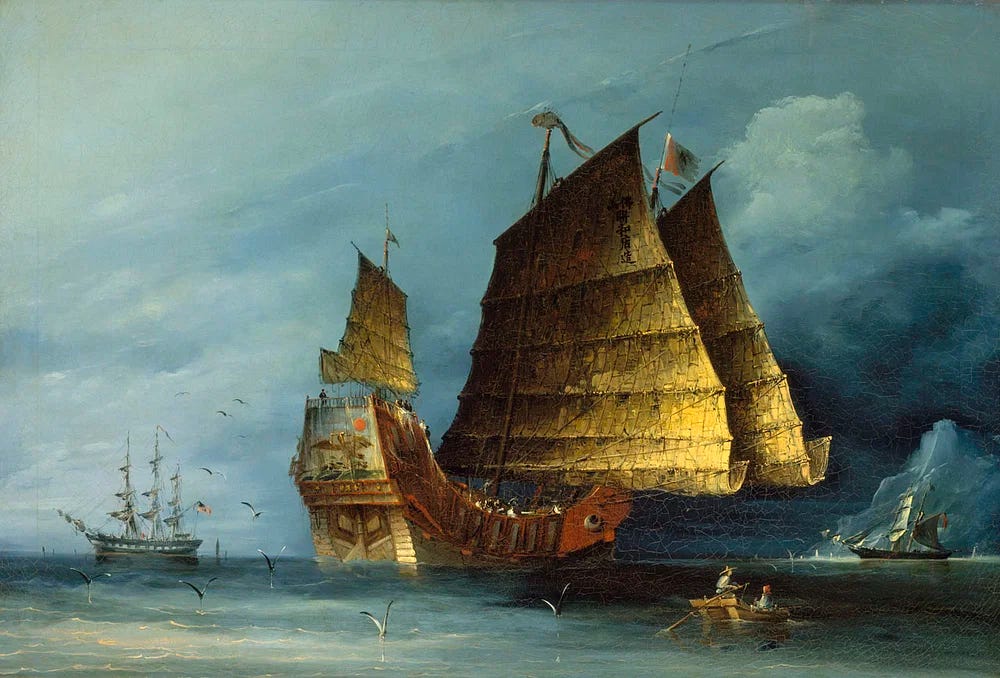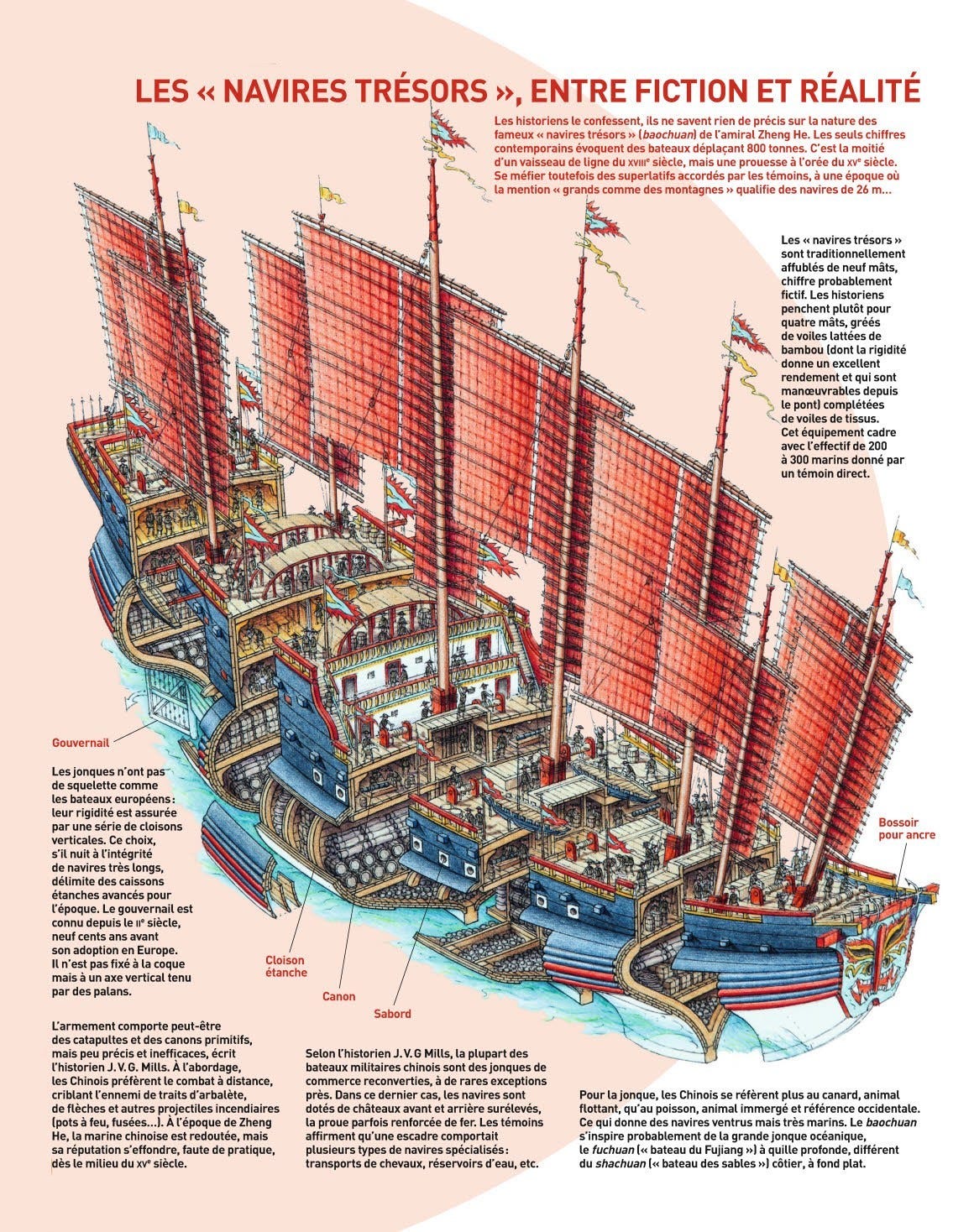Columbus vs. Zheng He: A Tale of Centralized vs. Distributed Decision-Making
How decentralized, profit-driven ventures outpaced centralized empires in shaping global history.

Summary:
In the early 15th century, Admiral Zheng He of Ming China led maritime expeditions of unprecedented scale—far surpassing those of Christopher Columbus in size, resources, and reach. Yet it was Columbus's much smaller venture that marked the beginning of a global age dominated by Europe. Why?
The key lies not in ships or sails, but in systems. Zheng He’s voyages were the product of top-down, bureaucratic decision-making. Columbus’s journey, on the other hand, was the result of profit-seeking initiative—funded by investors and motivated by returns. This contrast highlights a deeper truth: societies driven by decentralized, market-based decision-making allocate resources more effectively and sustainably than those ruled by centralized bureaucracies.
The Numbers Tell a Story
Zheng He's maritime campaigns (1405–1430) were nothing short of extraordinary:
Ship Size: Zheng He’s largest ships were estimated to be 70–127 meters long—dwarfing Columbus’s flagship, the Santa María (19 meters), and even Admiral Nelson’s HMS Victory (69 meters).
Fleet Scale: Zheng He commanded 300 ships and over 28,000 men. Columbus sailed with just 3 ships and 90 crew.
Technologically and organizationally, Ming China was far ahead. But that edge did not translate into long-term global influence.

Why Did China Turn Back While Europe Pressed Forward?
The difference lies in how decisions were made:
China's expeditions were state-led initiatives, driven by court politics and executed through a centralized bureaucracy. When officials deemed them too costly or politically risky, the voyages were abruptly ended. Trade and exploration were later banned entirely.
Europe's expeditions, by contrast, were decentralized and market-driven. Columbus’s voyage was a private venture backed by financiers and monarchs seeking returns. Over time, European exploration was supercharged by the invention of the joint-stock company, enabling broad investment by merchants, bankers, and private citizens. Incentives were shared—from the shipowners to captains and even sailors.
The Power of Distributed Decision-Making
This historical divergence illustrates a broader lesson: The cumulative decisions of many—guided by risk, reward, and market forces—outperform centralized planning in the long run. As Adam Smith described in The Wealth of Nations, the invisible hand of self-interest can steer societies toward innovation, expansion, and prosperity.
While some argue that Europe’s dominance came from a technological advantage, it was in fact Europe’s institutional advantage—a system that empowered individuals to act, invest, and take risks—that proved transformative.
Zheng He may have commanded the seas for a brief moment, but it was the distributed, entrepreneurial spirit of the West that ultimately reshaped the world.

